Everything in this world has an ending. Nothing will last forever. All things are made together with their termination dates, be it living things or non-living things. This expiration is inevitable but there are things you can do to prolong the life of a certain thing.
For example, a proper diet and exercise will help you to live a healthy and long life. In the same manner, proper maintenance and care of non-living things like your car’s battery will contribute to its lifespan.
In this article from Philkotse.com, we will tackle what you need to know about car batteries dying.
What is the operational lifetime of a car’s battery?
The operational lifetime of a car’s battery is usually based on its duty cycles. This term is being used for all types of batteries. It does not contain a true definition for every application.
For example, some batteries are intended to be discharged completely, while others need to always have some charge.
A car battery is an example of lead-acid batteries. It falls under the second category. The duty cycle on this is made of a certain drain percentage, full charge battery, then life goes on.
None of these three should be a problem if everything under your hood is working properly.
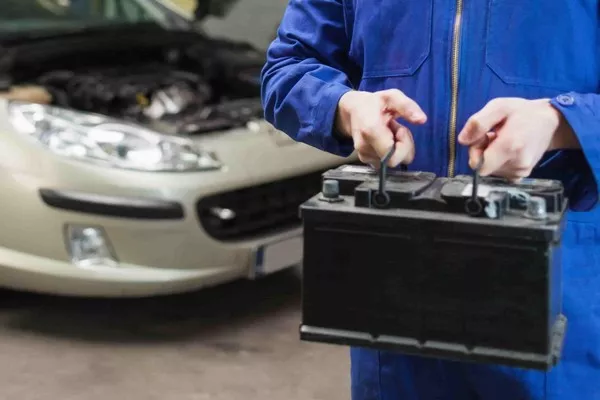
The operational lifetime of a car’s battery is usually based on its duty cycles
In a normal situation, your battery will be drained a little when you start the car. The alternator will then charge it as you drive.
Also, any power used by the car accessories or any devices while driving will be supplied from the alternator. The car battery never goes beyond the cycles that it's designed for.
But, if things on your car are not properly working, that is when a problem will arise. It will also happen if the battery is discharging more than what it is supposed to.
For instance, you forgot to turn off the headlights overnight. This is a classic example of the over-draining of a car’s battery.
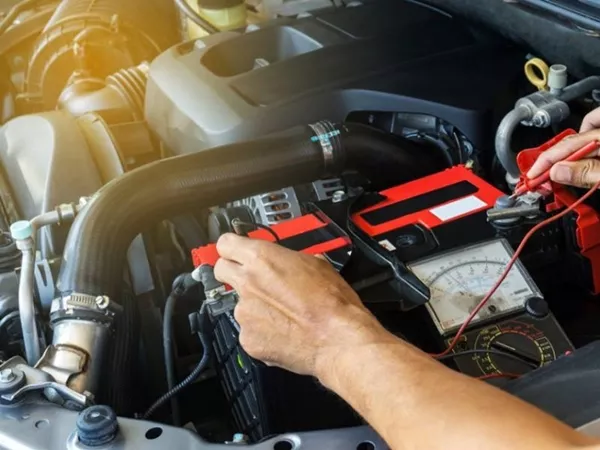
This is a classic example of the over-draining of a car’s battery
There are many things that can cause an overly-discharge battery. One of these is the malfunction of your alternator. It is not charging the way it is during normal conditions.
You can know this if the following indicators are happening. (1) warning light flips on (2) dimming of dash lights or headlights, and (3) dropping of voltage in the voltage meter below 14.2 volts.
>>> Related: 7 factors that affect your car's battery life expectancy
What is happening when a car battery discharges?
As discussed above, a car battery is a lead-acid battery. These batteries are not that efficient or impressive on what they do. They didn’t change a lot in the past years.
The basic principle is very simple. The lead plates are soaked in sulfuric acid and are distributed in pairs. The acid acts as the electrolyte. Each pair of lead plates is covered in lead dioxide. A chemical reaction will occur if a voltage is applied to it.
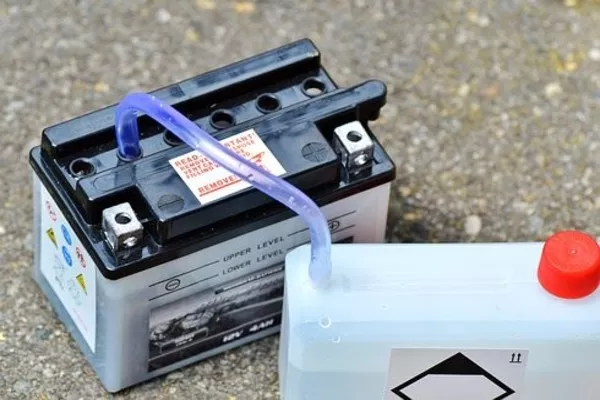
A car battery is a lead-acid battery
>>> Related: Top possible reasons your car battery discharges overnight
The discharging of the lead-acid battery happens every time you start your engine. It will also happen if you run your stereo or light up the headlights.
The plates are being covered by lead sulfate every time the battery discharges. This is normal, and under usual conditions, it is reversible.
For example, the plates in your car battery will be covered by lead sulfate if you turn on the radio while the engine is off. On the other hand, the sulfation of the battery will reverse once you start the engine.
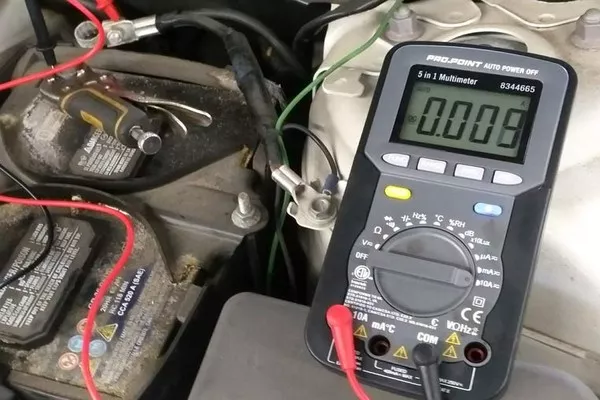
The discharging of the lead-acid battery happens every time you start your engine
>>> Related: A driver's guide in choosing the right battery brand in the Philippines 2020
Why is excessive discharging of a car battery not good?
The battery is counted to be discharged fully when the voltage drops to about 10.5 volts. This damage is irreversible and is caused by excessive sulfation.
Regular sulfation is reversible while draining excessively of your car battery is not. It will permit the crystallization of the lead sulfate, allowing the battery charging to still reverse some sulfation, but the crystallized sulfate will not vanish on the plates.
This sulfate will not return to its normal state. It will result in a permanent reduction in the output of a car battery.
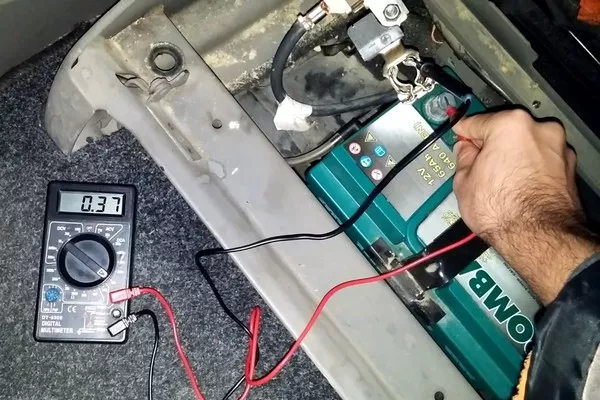
The battery is counted to be discharged fully when the voltage drops to about 10.5 volts
The other harmful effect of allowing the lead sulfate to be crystallized is the shortened lifespan of a car battery.
If there is too much-crystallized lead sulfate, the battery will be unable to give enough amperage that can start an engine. Therefore, you need to replace the battery of your car.
What to do with a car battery that is drained?
The damage is irreversible when a car battery drops below the full discharge state. The only thing to do now is to check the electrolyte. You can put it into a trickle charger.
Fortunately, you can charge the battery to full state if the excessive discharging happens for the first time only. You can still use it but then again, the damage is permanent every time the battery discharged below 10.5 volts.
Also, it is very important to know that jump-starting a car with a fully discharged battery and then rolling away is not good for the alternator or battery.
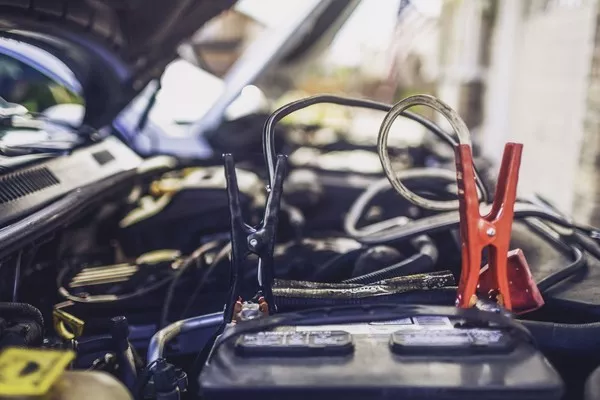
Jump-starting a car with a fully discharged battery and then driving it is not good for the alternator or battery
The battery will not be fully charged with this even if you drive for a long period of time and maintain the engine rev up. Doing this may also result in further sulfation as you are using the battery at a state close to fully discharge.
The alternator will also find difficulty in doing this as they aren’t made to charge batteries in a full discharge state. The voltage regulator of alternators also needs a 12-volt input for normal operation.
How to prevent the car battery from draining?
Proper routine care and maintenance of your battery is the best way in order to prevent it from draining. This will let you notice problems that will occur at the later stage.
You should also not allow the occurrence of parasitic drains. If you are having difficulty starting your car but didn’t do anything for the battery to discharge excessively, a drain may be present somewhere in the system.
Recent posts
- 4 common car battery problems you might face someday Mar 13, 2020
- How you deal with the yellowish-white powder on your car battery Mar 12, 2021
- Do you think you know all different types of car battery? Jan 05, 2021
- How to keep car battery from dying and everything you need to know Mar 12, 2021
- Handy tips on how to charge and maintain car battery properly May 24, 2023












